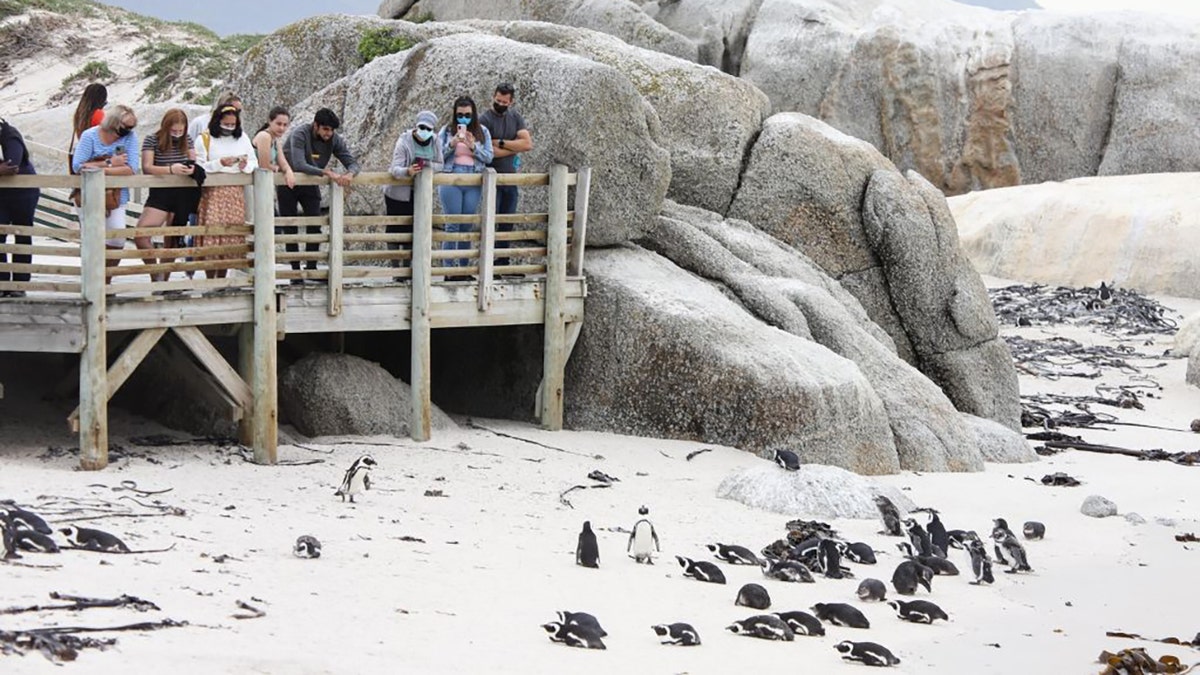Fox News Flash top headlines for September 20
Fox News Flash top headlines are here. Check out what's clicking on Foxnews.com.
More than 60 endangered African penguins were apparently killed by a swarm of bees in South Africa last week, in what bird conservationists described as an unusual occurrence.
The 63 birds were found dead inside the Boulders African penguin colony in Simon's Town, located near Cape Town, according to a press release from the South African National Parks (SANParks). The penguins died sometime between Thursday afternoon and Friday morning.
A post-mortem revealed that all of the penguins had multiple bee stings. Preliminary investigations suggest they died after being stung by a swarm of Cape honey bees, the release added.
SEQUOIA NATIONAL PARK'S ‘FOUR GUARDSMEN’ TREES PROTECTED FROM FIRE

Visitors look at African penguins at Boulders Penguin Colony, Simon's Town, southwest South Africa, April 25, 2021. (Photo by Lyu Tianran/Xinhua via Getty) (Xinhua/Lyu Tianran via Getty Images)
Honey bees die after stinging and many dead bees were found at the site where the birds had died. Samples of the penguins were still being tested for other "toxicity possibilities and diseases" to rule out other potential causes, according to the release.
"Usually the penguins and bees co-exist," Dr. Alison Kock, a marine biologist with SANParks told the BBC.
"The bees don't sting unless provoked - we are working on the assumption that a nest or hive in the area was disturbed and caused a mass of bees to flee the nest, swarm, and became aggressive," she added.
Post-mortems determined the penguins were stung around the eyes and on their flippers.
MASSIVE HALIBUT WEIGHING 287 POUNDS SELLS FOR NEARLY $1,400
Katta Ludynia, of the Southern African Foundation for the Conservation of Coastal Birds (SANCCOB), said this was because those areas of the bird are not covered in feathers.
The African penguin breeds at 25 islands and four mainland sites in Namibia and South Africa. It has seen a very rapid population decline due to food shortages, commercial fishing, and environmental fluctuations, according to the International Union for Conservative of Nature.
National parks officials told the BBC this was the first known attack at Boulders Beach, which attracts thousands of tourists each year.
CLICK HERE TO GET THE FOX NEWS APP
Kock thanked the conservation partners of SANParks, including SANCCOB and the City of Cape Town, for assisting in investigating "this unusual event."









































